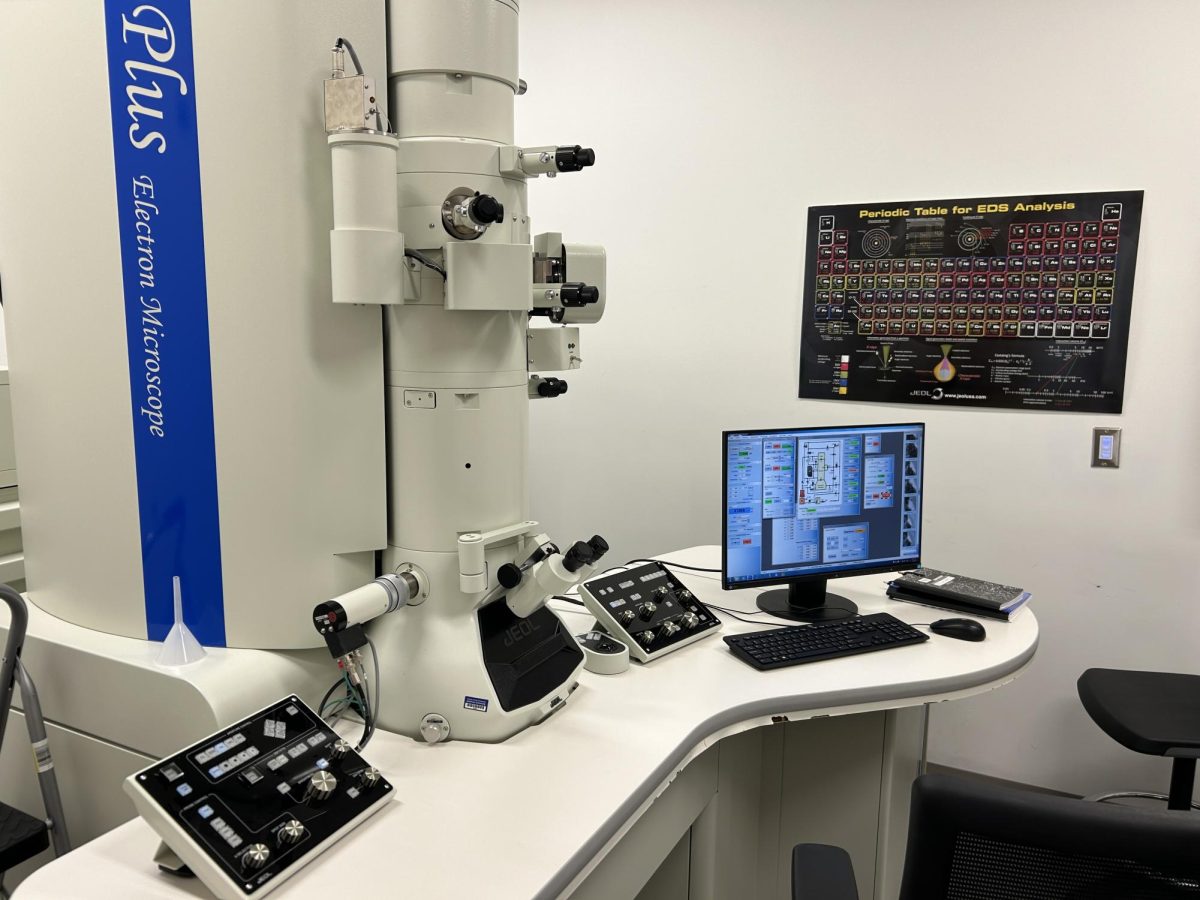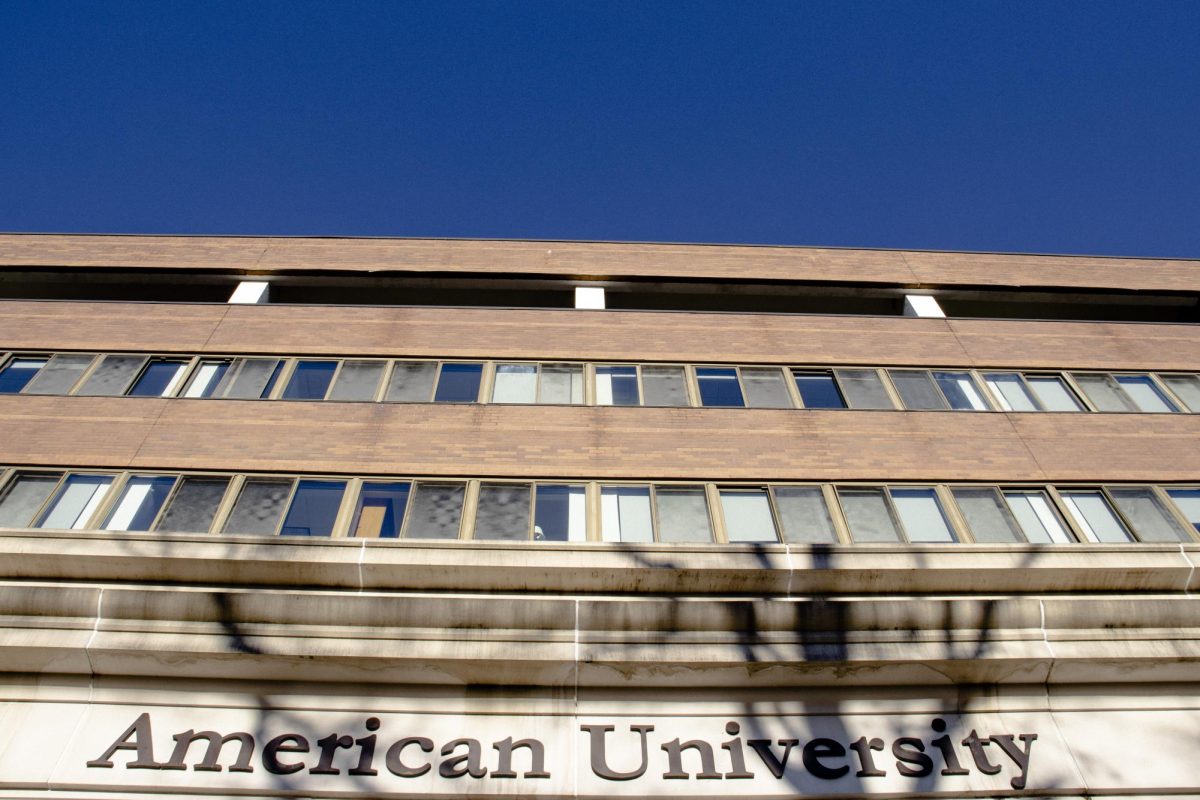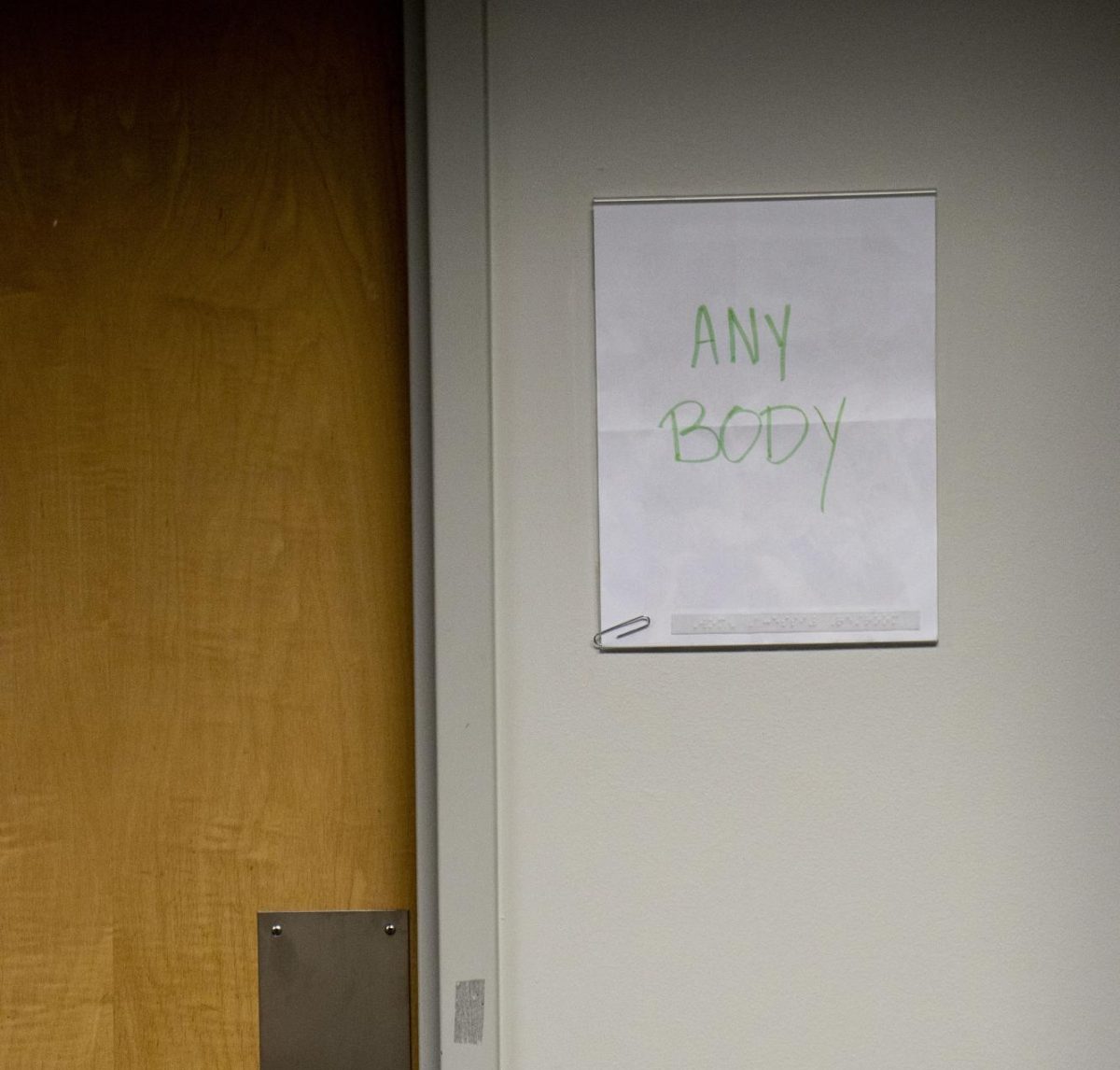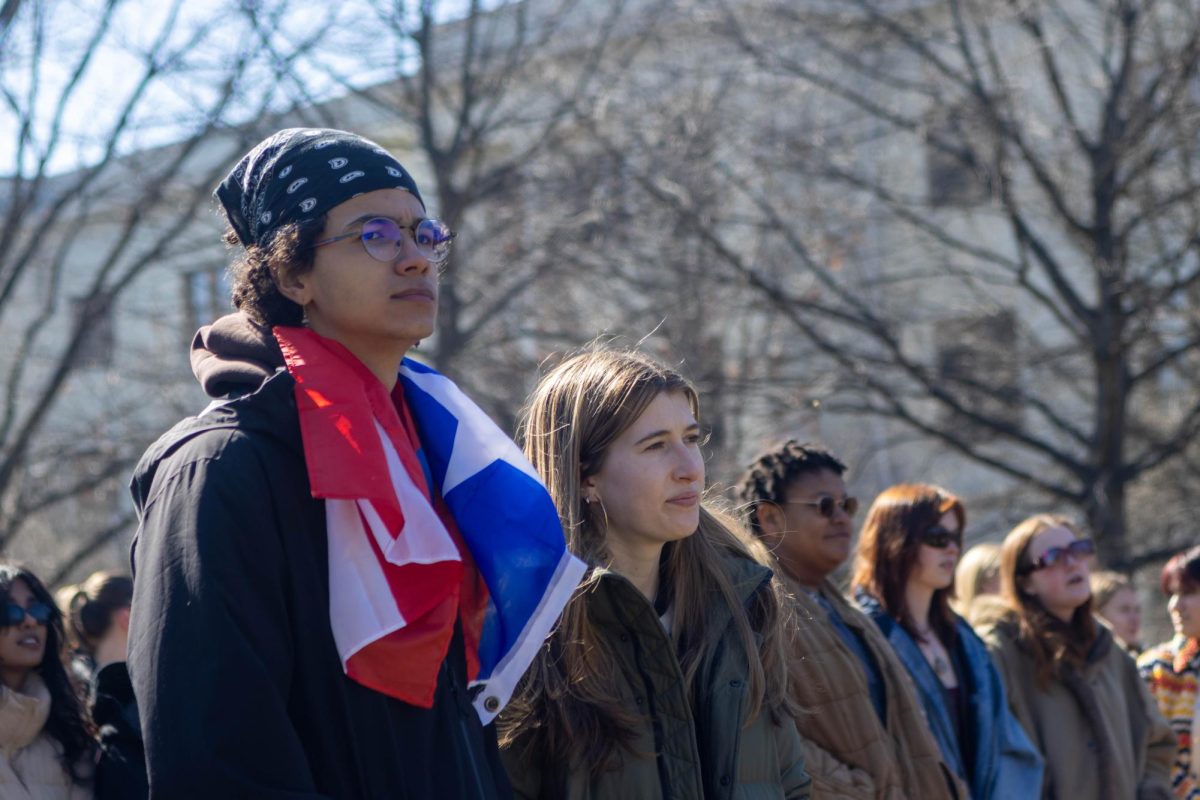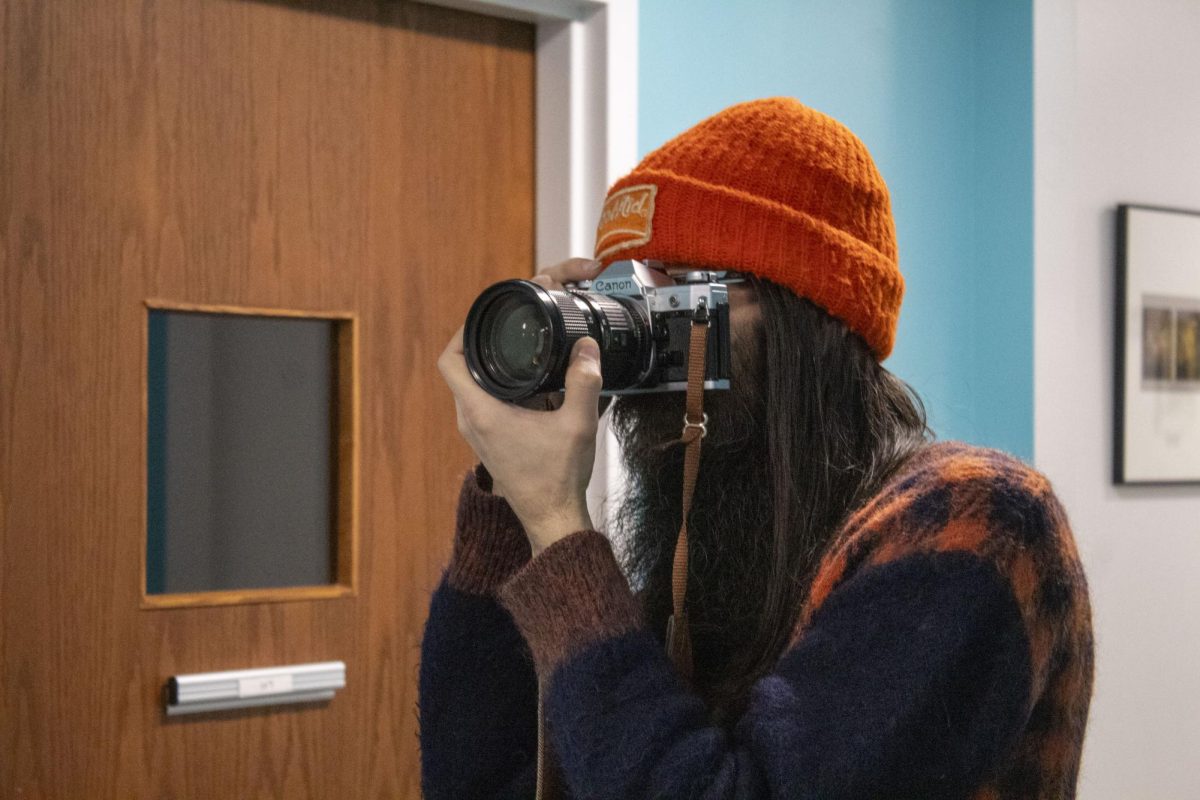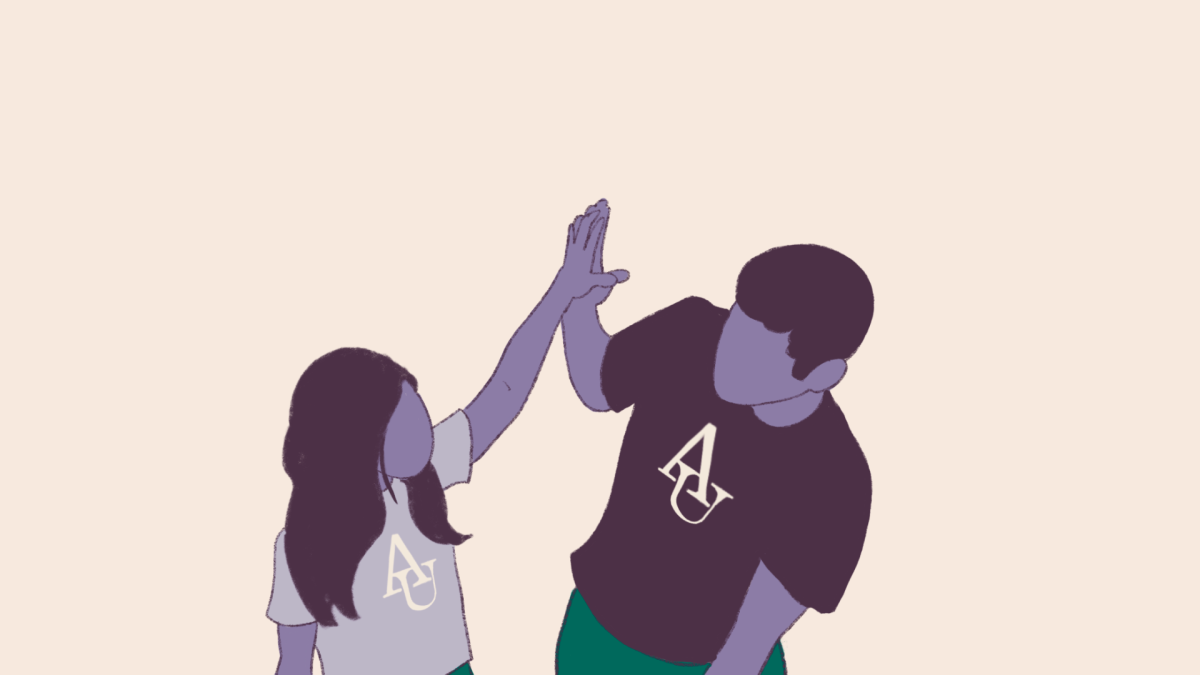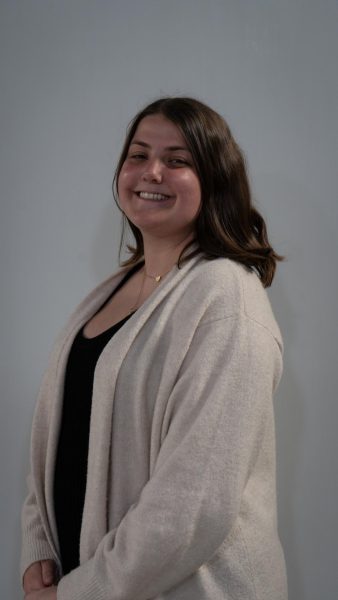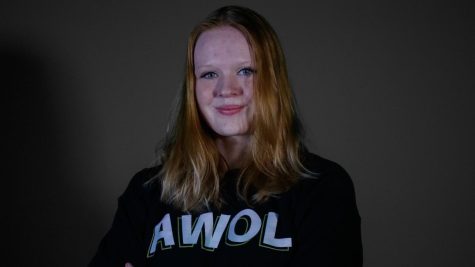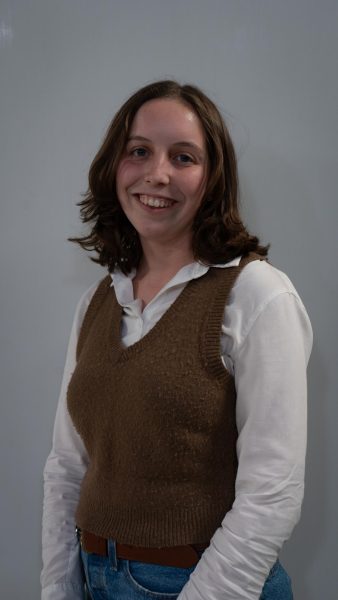Helena Milburn is on the executive board of the Disabled Student Union with Katherine Greenstein and was not involved with the writing or reporting of that section of the article.
Freshman Shelby Brown was riding the Letts Hall elevator in December when it suddenly dropped from the fifth floor to the third.
“I was trying my best not to cry because it was scary,” Brown said.
Brown’s experience is not unique. Over the past few years, several students have reported being dropped in the Letts Hall elevator, along with other elevator problems across campus.
In 2019, Abbie Kitariev was also dropped in a Letts Hall elevator from the fifth floor to the terrace level. Kitariev said while the administration might have more to deal with now, she feels the university cares less now than they did three years ago.
“It feels like they’re putting, like, student safety on the backseat,” Kitariev said.
The history of problems with the Letts Hall elevators stretch as far back as 2010. An Eagle article from April 21 that year describes outages in the Letts Hall south elevators.
Vincent Harkins is the assistant vice president of facilities and construction at American University. Facilities Management oversees elevator operations along with shuttles, utilities and other services.
When asked about student testimonies of the elevator falling, Harkins said that he did not want to speculate since he was not there. However, Harkins said he doesn’t believe someone would be in an elevator that freefalls two stories and walk out unscathed.
He said that facilities management had not gotten reports of people being dropped in elevators other than once when public safety staff interviewed students who reported being dropped to the front desk of their building.
“Did it drop two floors freefall? Well, all I can tell you is I have no idea, but I don’t think anybody would be walking out of that,” Harkins said.
The federal Fair Housing Act mandates that it is illegal to discriminate against those with disabilities for a “covered housing provider” or those who are “in the provision of services or facilities in connection with such dwelling.” Because of this, housing providers must conduct routine maintenance and repairs.
Per D.C. regulations, all elevators on campus are inspected twice a year, Harkins said. Facilities Management has a master plan which lists every part in each elevator, how long they have been in use and if any parts are wearing quicker than expected to determine when they need to be replaced. The university has a contract with Warfield & Sanford, a local elevator services company, to do inspections and repairs.
Harkins said they will also replace parts due to emergency but in the 11 years he has worked at AU he has never seen an elevator shut down for that reason.

Katherine Greenstein, president of the Disabled Student Union, describes how elevators not working puts disabled students at risk.
“Elevators are access tools,” said Greenstein. “We use them for accessibility. They are in buildings because they help people access things. Not everyone can take the stairs.”
Greenstein describes an event where they were in the McDowell Hall Lobby with their friend and both elevators were out for maintenance.
“She is an ambulatory wheelchair user. We were staring at the nonworking elevators,” Greenstein said.
Another student offered to carry their friend’s wheelchair up the stairs to the third floor, while Greenstein supported their friend up the stairs.
“The core of the situation is that it should never have come down to me and my friend relying on a complete stranger to carry her mobility aid upstairs and me helping her get upstairs to her room,” Greenstein said.
Greenstein, like Elligton, helped draft the legislation to fix all elevators on campus along with door open buttons.
“It took them an entire semester to fix the McDowell elevator,” said Greenstein. “How did it take them a semester to fix one elevator in a residence hall, where students are constantly needing elevators because there are multiple disabled students. I know members in my organization who need that elevator, who were not able to access it because it was not being maintained, despite constant requests for maintenance.”
Harkins said that both McDowell Hall elevators were replaced in the past year. According to Harkins, one of the elevators was taken offline to renovate it and replace parts of the elevator. He said this was sent in a memo through 2Fix to the community, including students, staff, faculty and housing.
Freshman and Letts Hall president Luke Bias said he had a similar incident to Brown and Kitariev in the Letts Hall south elevator. On Jan. 18, the elevator dropped him from the third to first floor before eventually bringing him up to the fourth floor. The elevator was rattling and making loud noises.
Bias said he wants the people who elected him president to feel safe and heard.
“It’s just hard because like, you want to act on like what you ran on, and you can’t because, like, it’s so difficult to, like, get a repairman to come fix an elevator,” Bias said.
In Centennial Hall, freshman Maya Becker was having problems with the elevators when she returned to campus for the spring semester. Becker, who had a sprained ankle at the time, said the elevator would often not go to her floor. Although she was supposed to be letting her ankle rest, Becker said she ended up frequently walking the five flights of stairs to her dorm.
“Personally, it’s really painful and stressful,” she said.
These issues were present at the time of Becker’s interview on Feb. 3 but she said they were resolved by mid-February.
Both Becker and Brown said they wished university administrators would acknowledge the problem and apologize.
However, Luke Bias said that students know about what is happening on campus before administrators do so an email apology at this point would be too late. Bias said an open line of communication between the hall president, Housing and Residence Life, the Residence Hall Association and the university would be helpful in resolving issues.
While Facilities Management has some knowledge of public social media posts about issues with elevators, the only way they can solve problems with the elevators is if students contact 2Fix, Harkins said.
“If you have issues, call 2Fix. That’s the only way we know about it, we can’t read people’s minds,” Harkins said.
While most reported problems with elevators have been in dorm buildings, students have also had negative experiences in an elevator in the Mary Graydon Center.
Sophomore Stevie Early has gotten stuck in an MGC elevator twice. Once on Oct. 20 with four to five members of the American University improv team and again about two weeks later with one other student. Both times Early was stuck while trying to get from the third to first floor.
Early said that she was stuck with the improv team for between five and ten minutes. She said she pushed the emergency button but was able to get the elevator moving again by selecting the button for the terrace level. This tactic is also what got the elevator moving the second time she was stuck.
Another sophomore, Parthav Easwar, said he and the Bhangra team were stuck in the MGC elevator for ten minutes. Senior Samie Pye said when she was in the MGC elevator it dropped her from the third to the ground floor.
One student trying to combat this issue is freshman and AU Student Government senator Taraji Elligton. Elligton lives in Anderson Hall and described similar problems to the ones in Centennial Hall.

Elligton said that because of these issues most people have elected to take the stairs. He reports that these problems were resolved about a month and a half after they began.
“Initially, I was very annoyed … I’m able to walk up the stairs without any, like, trouble. But then I realized there’s also a lot of people who have trouble walking up the stairs and, and different things like that in different aspects,” Elligton said.
Elligton and Senator at Large Ryan Hale wrote a non-binding resolution that asks the university to fix broken elevators and addresses other accessibility issues on campus like fixing broken automatic door buttons. The resolution passed unanimously on Feb. 20.
Elligton said he predicts the university might implement some of the smaller changes in the resolution like making sure automatic door buttons and elevators are up to date, but he does not expect them to make large changes.
Abbie Kitariev emphasized this when explaining why she wants to see a response from the university, since AU students live on-campus for nine months out of the year.
“Yeah, I wish that the university would take more initiative. Because we do pay to be here and we live here. Like it’s our home we want it to be a safe space of us.” Kitariev said.



